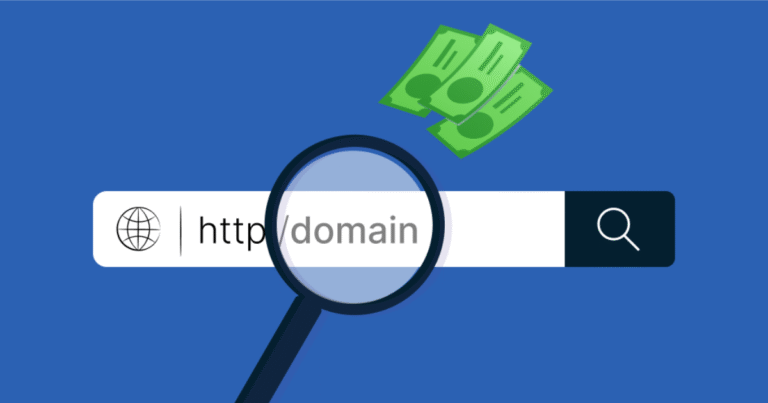Why You Need Both Domain and Web Hosting for a Professional Website
In today’s digital landscape, establishing a professional online presence is essential for both businesses and dedicated bloggers.
But what does it truly take to create a standout website? At the core of this endeavor lie two critical components: the domain and web hosting.
Understanding their distinct roles, such as how they integrate with platforms like WordPress and manage email accounts, can profoundly impact online success.
This article delves into the significance of both services, examines the risks associated with keeping them together, and highlights the benefits of separating them, including options for enhanced security and flexibility. It offers valuable insights to assist individuals in making informed decisions regarding their websites.
Key Takeaways:
1. A professional website requires both a domain and web hosting to function effectively and establish a strong online presence.
2. Choosing separate providers for domain and hosting offers more flexibility and better security measures compared to keeping them with the same provider.
3. Pointing your domain to web hosting is a simple and necessary step in the process of creating a professional website, and can be done through configuration steps.
Understanding Domains and Web Hosting
Grasping the distinction between a domain and web hosting is essential for anyone aiming to cultivate a successful online presence. These elements must be integrated through effective DNS management and user-friendly control panels. A domain name serves as the website’s address on the internet, while web hosting refers to the service responsible for storing the website’s files and ensuring their accessibility online. Both components are essential for any online endeavor, whether for business purposes or serious blogging.
A trustworthy domain registrar, such as Domain.com, facilitates the acquisition of a desired domain name, while esteemed web hosting providers like HostPapa deliver the necessary storage, bandwidth, and customer support to maintain a website’s functionality.
Moreover, comprehending the roles of DNS, IP addresses, and reliable server connections in the process is vital for achieving seamless integration and optimal performance.
What is a Domain?
A domain name serves as a user-friendly address, guiding internet users to a specific website and obviating the need for cumbersome numerical IP addresses. Typically concluding with extensions such as .com, .org, or .net, these names are registered through registrars that facilitate ownership and DNS management. This process not only allows individuals and businesses to carve out their unique identities online but also plays an essential role in branding and search engine visibility. Selecting the right domain name, with proper account management and security measures, can significantly enhance a brand’s memorability and relevance in an increasingly competitive digital landscape.
When one embarks on the journey of establishing an online presence, registering a domain name is often the initial step. This process requires the selection of a meaningful name that resonates with the intended audience, while also contemplating the various domain extensions available, which can indicate different purposes such as commercial or organizational use.
Upon registration, the owner gains control over the domain through DNS management, enabling effective traffic direction and the setup of email services. A thoughtfully chosen domain name stands as a cornerstone of digital identity, bolstering credibility, ensuring secure ownership, and leaving a lasting impression.
What is Web Hosting?
Web hosting serves as an essential service, enabling individuals and organizations to render their websites accessible on the internet by providing the requisite server space, bandwidth, backup solutions, and storage for website files. Various hosting options, including shared, dedicated, and cloud hosting, present differing levels of performance, uptime, and technical support.
A dependable web hosting provider guarantees not only that a website remains live and functional but also that it can efficiently manage traffic while upholding exceptional security, maintenance, and performance standards. Providers such as HostGator and iPower exemplify robust hosting solutions tailored to meet a wide array of needs.
Each type of web hosting addresses specific requirements; shared hosting offers a budget-friendly solution ideal for small sites with limited traffic, whereas dedicated hosting allocates complete server resources for larger enterprises, ensuring superior uptime, performance, and reliable access to online services. Conversely, cloud hosting introduces flexibility by distributing resources across multiple servers, allowing for scalability in response to varying traffic demands.
In selecting a web host, it is imperative to consider uptime guarantees, as frequent downtime can adversely affect a site’s reputation and impede effective technical support. Additionally, evaluating bandwidth limits and the level of technical support available can profoundly influence the overall user experience and functionality of the website.
The Importance of Having Both Domain and Hosting
Possessing both a domain and web hosting is essential for any business or dedicated blogger seeking to cultivate a professional and trustworthy online presence. The harmonious integration, enhanced by effective account management and email hosting, guarantees seamless accessibility and functionality, enabling users to navigate effortlessly to the site while safeguarding online assets through robust security measures.
A thoughtfully selected domain name strengthens brand identity, while dependable web hosting ensures optimal performance and uptime. This dual strategy not only elevates the user experience but also nurtures customer loyalty and trust, ultimately paving the way for long-term success.
How They Work Together
Domains and web hosting operate in harmonious synchrony to forge a cohesive online experience, with tools such as DNS and IP address translation ensuring effective connection. The domain name skillfully directs users to the appropriate web hosting server through the intricate process of DNS resolution. This vital connection facilitates the efficient management of website content and data, ensuring that users enjoy a seamless experience devoid of interruptions.
The performance of a website is profoundly influenced by the quality of both domain and hosting services, underscoring the importance of selecting reliable providers capable of guaranteeing uptime and rapid loading speeds.
The Domain Name System (DNS) serves as the backbone of this relationship, adeptly translating user-friendly domain names into IP addresses that web browsers can interpret, thus facilitating efficient server connections. When a visitor enters a domain into their browser, DNS servers operate diligently to pinpoint the corresponding hosting server, acting as the essential bridge that connects users to the hosted content.
This meticulous process not only dictates the speed at which a website loads but also influences its overall performance and search engine ranking.
Selecting the appropriate domain registrar and hosting provider necessitates careful consideration of factors such as server locations, scaling options, and customer support, all of which are pivotal in sustaining online visibility and fostering user engagement.
Brand Identity and Professionalism

A thoughtfully selected domain name, paired with dependable web hosting, forms the cornerstone of a robust brand identity, conveying professionalism and enhancing long-term online presence in the digital marketplace.
When potential customers arrive at a website, they often make quick assessments based on the domain name and the overall functionality. A memorable domain that aligns with the business’s vision cultivates a sense of trust and piques interest.
The significance of ownership cannot be underestimated; a distinctive domain name not only distinguishes a brand but also secures its foothold in the crowded online landscape. With reliable web hosting, uptime is optimized, ensuring visitors enjoy a seamless browsing experience, free from disruptions caused by spam and malware.
Together, these elements enhance an organization’s credibility, enabling it to build a strong reputation and foster enduring connections with its audience.
Choosing the Right Provider
Choosing the right provider for domain registration and web hosting is essential for achieving a seamless online experience and proficient service management, with recommendations often pointing to companies like GoDaddy and Microsoft 365 for email integration. Several key criteria warrant careful consideration during this selection process, including pricing, customer support, uptime guarantees, and the array of features available.
An exemplary provider should not only present competitive pricing and discounts but also deliver robust technical support and reliable services tailored to specific needs. Notable companies such as GoDaddy and HostPapa have earned a reputation for offering comprehensive solutions that accommodate a diverse range of business sizes and types.
Criteria for Domain Registrars
When selecting a domain registrar, one must carefully evaluate several criteria that can significantly influence the ownership experience and site management, including tools for efficient account and password management. Key considerations include pricing structures, the reliability of DNS management services, the availability of customer support, and the ease of transferring domains between providers.
An exemplary registrar should provide clear terms of service that safeguard ownership rights while facilitating efficient domain management and integration with online services. Registrars that offer additional features, such as domain transfer options and email hosting services like Microsoft 365, present a more comprehensive solution.
Assessing the registrar’s reputation within the industry is crucial; reading reviews and testimonials from existing customers or industry experts like John Conde can provide valuable insights. A well-established registrar typically showcases a commitment to customer satisfaction through responsive support channels, essential when technical issues arise.
An intuitive, user-friendly interface is also paramount, as it streamlines the domain management process. It’s important to partner with a registrar who prioritizes not only the sale of the domain but also delivers ongoing support and tools, such as account management and maintenance, that can effectively nurture and expand one’s online presence.
Criteria for Web Hosting Providers
Choosing the right web hosting provider like GoDaddy or HostGator is just as crucial as selecting a domain registrar, as it profoundly impacts a website’s performance and user experience.
In today’s digital landscape, a reliable provider is essential for maintaining a site’s speed, reliable performance, and accessibility, ultimately aiding in visitor retention. Potential customers should prioritize hosts that not only guarantee high uptime rates but also boast a proven track record in performance metrics and bandwidth management. It is vital to seek out companies that offer 24/7 customer support, ensuring technical assistance and customer support are readily available when issues arise.
Comprehensive features, such as automated backups, robust security protocols, and password management are essential for protecting data against potential threats. Additionally, a user-friendly control panel can significantly simplify site management, facilitating easy updates and installations. A clear and transparent pricing model further provides peace of mind, eliminating the worry of unexpected costs and ensuring transparent pricing.
Risks of Keeping Domain and Hosting with the Same Provider
Though it may appear convenient to consolidate both domain registration and hosting services with a single provider, this practice can introduce a range of risks that could jeopardize one’s online presence.
Relying on a singular provider for both services may lead to potential downtime or security vulnerabilities, particularly in the event of outages or security breaches on the provider’s end. Such scenarios could render a website susceptible to malware attacks or spam, ultimately compromising its reputation and eroding customer trust.
Therefore, it is imperative to meticulously weigh the advantages and disadvantages before arriving at such decisions.
DNS and Server Outages
DNS and server outages present significant challenges when both domain and hosting services are managed by the same provider. A disruption in one can lead to a complete loss of connection to the website, establishing a single point of failure. Consequently, if the provider experiences an outage, both the domain and hosting may become inaccessible.
The repercussions of such outages on website availability can be profound, impacting user access, search engine rankings, and brand reputation. Consider potential customers searching for services only to find nothing due to an outage; this scenario emphasizes the critical importance of having robust systems in place. Implementing redundancies, such as an alternative DNS provider like HostPapa or a secondary hosting service, can greatly enhance reliability.
With these measures in place, there exists a backup route that ensures the site remains online, preserving user connection and fostering confidence in the brand.
Security Concerns: Malware and Spam

Security concerns present a considerable risk when a domain and its hosting are managed by the same provider, as this arrangement can create vulnerabilities ripe for exploitation by malware and spam attacks. If the provider’s security measures fall short, both the domain and the website may face compromise, resulting in severe consequences for the brand’s reputation.
A single point of failure can prove particularly detrimental. In case of a security breach, not only is the website at risk, but the very identity tied to the domain could also be severely threatened. Such scenarios can pave the way for phishing attacks that leverage the domain to mislead users or disseminate harmful content. Consequently, opting to separate these services can significantly mitigate risks.
Furthermore, implementing additional protective measures—such as secure Socket Layer (SSL) certificates, regular security audits, and robust firewalls—can greatly enhance defenses against potential malware and spam threats, thereby ensuring a safer online presence.
Benefits of Keeping Domain and Hosting Separate
Maintaining a separation between domain registration and hosting services can yield a multitude of advantages, such as heightened flexibility, greater control, and improved security for online assets, especially when using specialized tools and applications.
By selecting distinct providers for these critical services, individuals can capitalize on the unique strengths each offers, thereby optimizing performance while reducing the risks inherent in relying on a single entity.
This strategic arrangement facilitates superior management of domain settings and hosting features, ensuring a harmonious interplay between both components, ultimately fostering a resilient online presence with enhanced security.
Flexibility and Control
One of the primary advantages of maintaining a separation between domain and hosting services lies in the unparalleled flexibility and control it affords. This arrangement allows for modifications to each service independently, ensuring that changes to one do not adversely affect the other. Such autonomy enables businesses to transition to superior hosting providers for enhanced performance or to adjust domain settings in response to evolving business needs.
This level of adaptability can greatly improve the management of an online presence, enabling a business to stay ahead of trends while delivering consistent, high-quality service.
Moreover, this separation allows businesses to select specialized providers that excel in various critical areas, including speed, security, customer support, and offer competitive pricing models. By isolating these components, they can choose a domain registrar that offers competitive pricing and comprehensive domain management tools, while simultaneously securing a hosting service renowned for its reliability, scalability, and comprehensive features.
This strategic decision ensures that a business can swiftly respond to increased traffic demands or upgrade its online features without being hampered by the restrictions commonly associated with bundled services.
Ultimately, establishing a dynamic and responsive digital environment becomes far more achievable, setting the stage for sustained growth and success.
Improved Security Measures
Separating domain and hosting services can significantly enhance security measures by minimizing the risks associated with a single point of failure. Distributing these services allows for the implementation of more effective security protocols that leverage the unique strengths of each provider and company. Establishing a robust backup plan for both domain and hosting further bolsters security, safeguarding against data loss and unauthorized access.
When these services are managed independently, it becomes easier to pinpoint vulnerabilities pertinent to each, enabling more targeted defenses. For example, a domain registrar can offer advanced DNS security features such as DNSSEC, while a hosting provider can deploy sophisticated firewall systems and conduct thorough malware scanning. This tailored approach ensures that as threats evolve, security measures can also adapt, unencumbered by the limitations that might arise from integrated services.
In the unfortunate event of a compromise, having distinct control over these domains facilitates <b b=”” prompt=”” recovery and minimizes downtime. Consequently, a layered approach to security not only strengthens overall defenses but also streamlines recovery processes, ensuring that resilience is built into the very fabric of the system.
How to Point Your Domain to Web Hosting
Pointing a domain to a web hosting service entails the careful configuration of DNS settings to create a reliable connection between the two. This process ensures that users can access the website without encountering any difficulties.
Typically, it involves updating nameserver records, A records, or IP address to direct traffic to the hosting provider’s server. Adhering to the correct configuration steps is essential for delivering a seamless online experience and maintaining user-friendly interface to visitors of the website.
Configuration Steps
Configuring a domain to point to a web hosting service is a process both straightforward and involving various services such as DNS management and security measures, requiring meticulous attention to detail, ensuring that the website remains accessible with optimal uptime and performance. The journey begins with logging into the domain registrar’s control panel, such as GoDaddy or Domain.com, and navigating to the DNS settings. At this juncture, one must either update the nameserver information provided by the hosting service or modify the A record to direct traffic to the hosting server’s IP address. It is crucial that changes are saved correctly, ensuring proper connection and integration and that one allows adequate time, typically 24 to 48 hours, for DNS propagation, which may take anywhere from a few hours to as long as 48 hours, depending on the provider’s performance.
To initiate the process, one should locate the section typically labeled ‘Domain Management’ or ‘DNS Settings’.
- Should the decision be made to update nameservers, the new values from the hosting provider, such as ns1.examplehosting.com and ns2.examplehosting.com, must be entered in the registrar’s interface.
- Alternatively, for those opting for the A record method, it is essential to find the existing A record entry and ensure correct IP address integration, often defaulting to ‘@’, and replace the current IP address with the one associated with the hosting account, such as 192.0.2.1.
- After implementing these adjustments, it is advisable to double-check all entries for accuracy to prevent any potential downtime and ensure reliable service, and to confirm whether the registrar sends a verification email for account verification and access confirming ownership and successful transfer.
Also Read: Top Features of cPanel vs. Plesk Hosting for Developers
Summarizing Key Points

This article elucidated the crucial elements of possessing both a domain and web hosting for a professional website, emphasizing the distinct advantages, including flexibility and control over features of each service while also addressing the potential risks associated with consolidating them under a single provider. It delved into the significance of selecting trustworthy providers based on essential criteria such as customer support, pricing, security measures, and account management.
Grasping these factors is imperative for anyone aspiring to establish a credible online presence with professional domain registration. The advantages of maintaining separate domain and web hosting services include enhanced credibility, improved search engine rankings, and greater control over website content.
However, one must remain vigilant against spam and malware regarding potential pitfalls, such as the complications that can arise from provider lock-ins or insufficient support during technical challenges. Thus, individuals should meticulously evaluate options and recommendations these considerations during their decision-making process, ensuring that they choose providers that align with their specific needs and objectives, ultimately laying the groundwork for a robust digital strategy.
FAQs
1. Why do I need both domain and web hosting for a professional website?
Having a domain and web hosting are essential for creating a professional online presence. A domain is your website’s address, while web hosting is the service that stores and delivers your website’s content to your visitors. Without both, your website won’t be accessible to the public.
2. What are the benefits of having a registered domain name?
Having a registered domain name gives your website credibility and establishes your brand identity. It also helps with search engine optimization (SEO) and makes it easier for visitors to remember and find your website.
3. Can I use a free domain instead of registering one?
While there are free domain options available, they often come with limitations and may not be as professional-looking as a registered domain. Additionally, having your own registered domain shows that you are serious about your website and business.
4. What makes web hosting important for a professional website?
Web hosting provides the necessary storage and bandwidth, along with user-friendly tools and applications for your website to function smoothly. It also ensures that your website is accessible to visitors at all times, leveraging backups and technical support, which is crucial for businesses and serious bloggers who rely on their website for online presence and revenue.
5. Are there different types of web hosting available?
Yes, there are various types of web hosting, such as shared hosting, VPS hosting, and dedicated hosting. Each type offers different levels of resources and control, so it’s essential to choose the right one based on your website’s needs and goals.
6. Can I use a domain and web hosting from different providers, like HostGator or iPower?
Yes, you can use a domain and web hosting from different providers. However, it’s usually more convenient to use both services from the same provider as it simplifies the process, improves account management, and enhances customer support and ensures compatibility. It also allows for better customer support in case of any technical issues.







